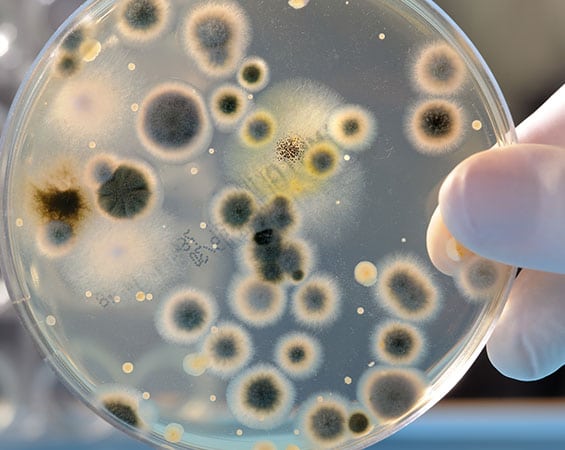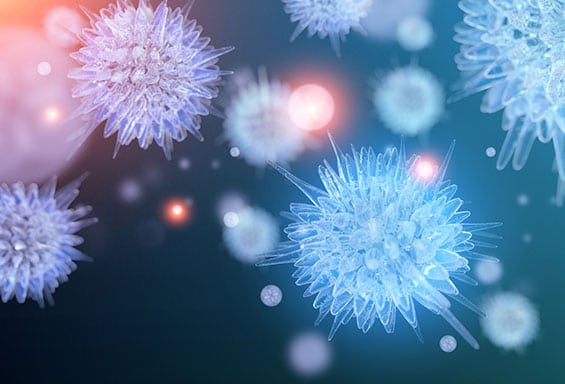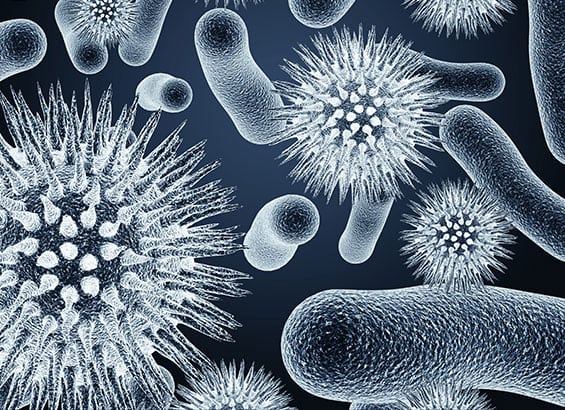
Get fast and accurate results with molecular bacteriology and virology testing from Chabado Genomics.
Bacteria are unicellular prokaryotic organisms often found on skin, in mucous membranes, and in the digestive system that are often harmless. A weakened immune system or an immune system disorder may cause bacteria to become pathogenic (capable of producing disease). Viruses invade cells and cause the immune system to mount a defense to get rid of them.
- By the time testing is done at our lab, a suspected type of bacteria or virus is likely causing a patient to experience noticeable and problematic symptoms
- We make quick identification a priority
Testing for Bacteria Identification
Bacteriology-related investigations are often conducted to support a diagnosis. Bacteria can assume various shapes and sizes that can help identify their presence in a sample. We perform a wide range of qualitative (for identification purposes) tests to validate antimicrobial efficacy. Bacterial identification involves several testing methods, including:
- Comparison to Gram-positive and Gram-negative samples
- PCR testing
- Straining of isolated bacteria
- Biochemical testing
- Motility testing
- Serological tests
- Phage typing


Identifying Viruses
Virology-related investigations are usually done when symptoms have been affecting a patient’s overall health over time. Some viruses like herpes and HIV may remain in the body without being active. Even so, such viruses will still need to be monitored periodically with regular testing since their behavior within the body can change. Acute respiratory viral infections (ARVI) are the most common source of infectious diseases. Real-time PCR technology is typically used to detect most viruses. Common viruses detected with viral testing include:
- Herpes simplex
- Influenza (flu)
- Human papillomavirus
- Rotavirus
- Respiratory syncytial virus (RSV)
Collecting Samples for Testing
Blood testing is the most common method for collecting samples to identify bacteria and viruses. Urine may be tested when a patient has a suspected digestive, kidney, or urinary tract infection. Stool samples can also be tested for the purpose of detecting bacteria and viruses. A sputum culture may be collected to identify bacteria present in a thick fluid in the lungs to identify the source of a suspected respiratory infection. Saliva and mucus can also be evaluated.
Importance of Bacterial/Virus Testingm
Symptoms related to a virus are treated very differently than similar symptoms due to bacteria. Antibiotics only work on bacterial infections. When a bacterial infection is confirmed, testing may be necessary to determine the most appropriate antibiotic to treat the infection (sensitivity testing). Testing is also important since there can be many strains of common viruses and bacteria. Nearly 6,000 separate bacterial species or strains can be found in the digestive tract alone. Bacterial and viral infections can occur individually or together in the body. Early treatment of either type of infection can reduce the risk of complications.
Chabado Genomics is a boutique laboratory that provides physicians with personalized services. The testing for the presence of various types of bacteria or the identification or a suspected or unknown virus performed on-site at our lab involves attention to all essential details. Results are presented in clear, easily accessible reports in a timely, efficient manner so important patient care decisions can be made.
